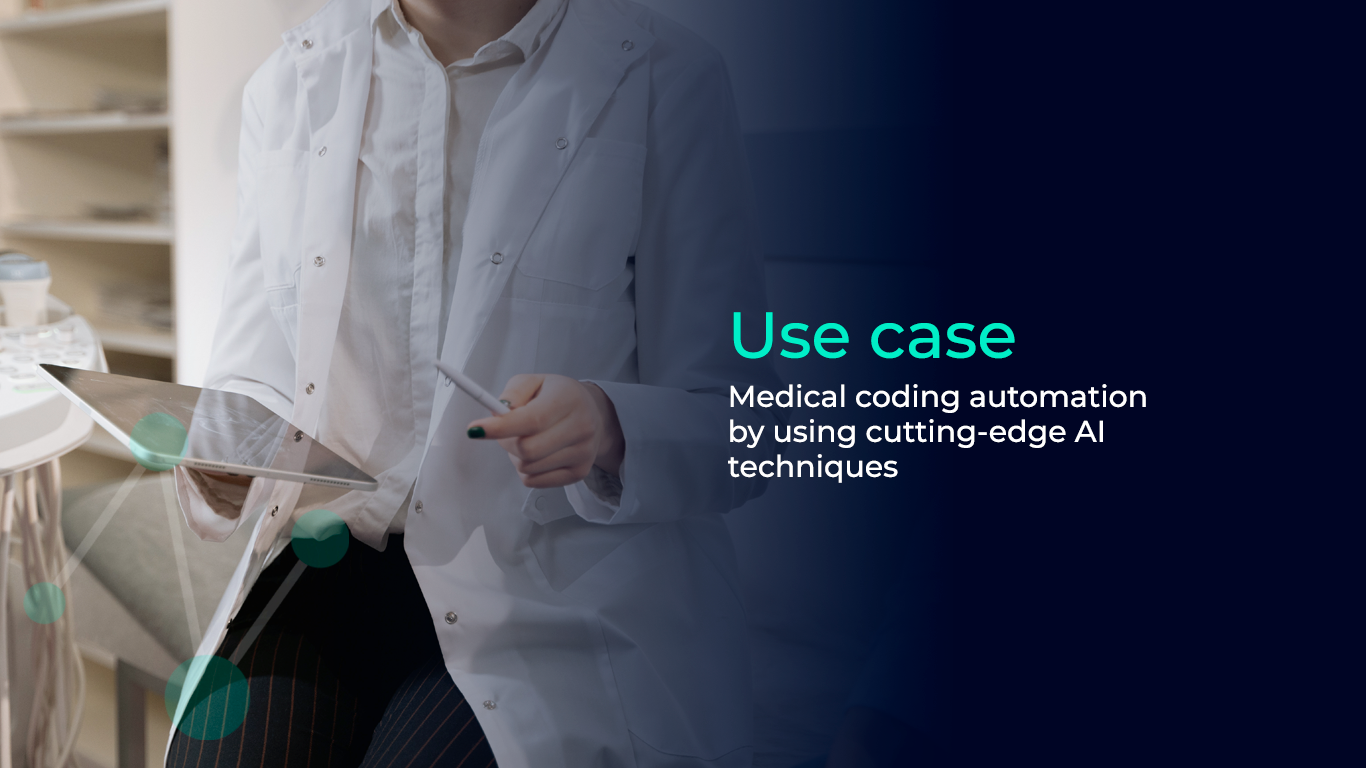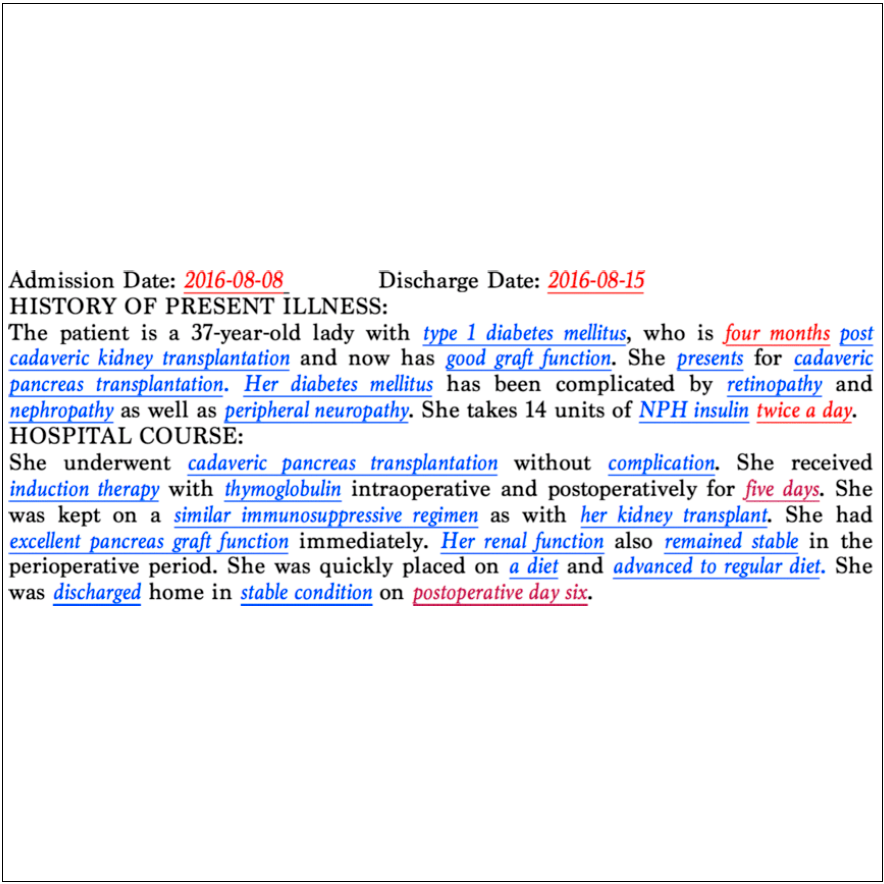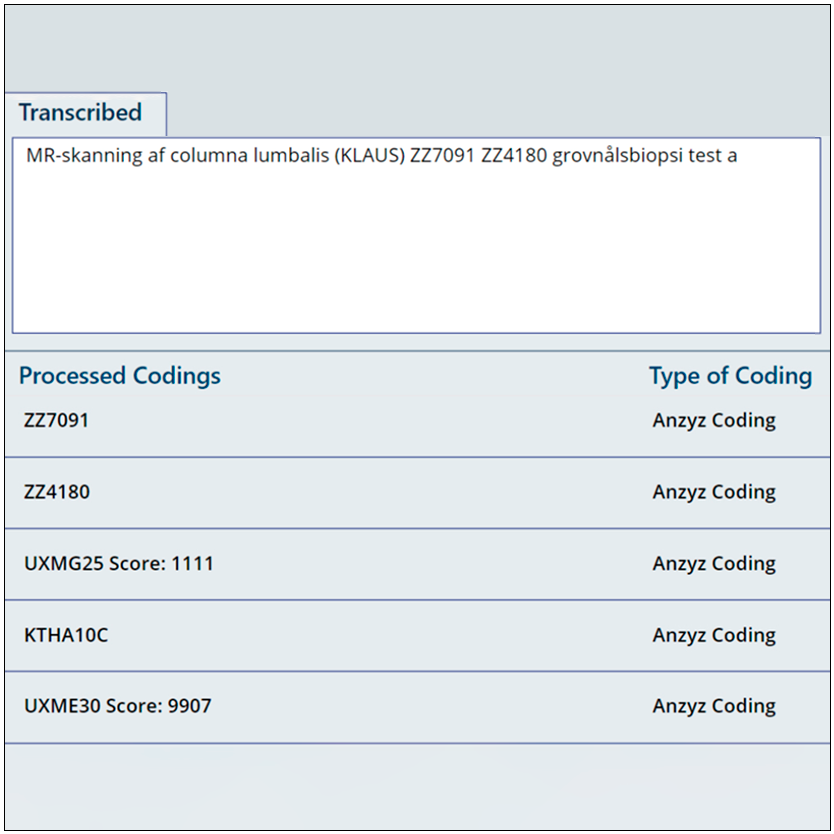
There are many challenges facing health care professionals in their daily work such as manual administrative tasks, long working hours, and dealing with human suffering. At the same time the COVID-19 pandemic has added additional stress including a surge in patients requiring medical care, combined with a staffing shortage at many hospitals, clinics, and GP’s.
Traditionally, medical assistants are responsible for assigning medical health records proper medical codes. A manual work which is time-consuming and error-prone, requiring extensive expertise. There is a risk of errors due to inadequate documentation and rushed intake of information, e.g., in an emergency. By means of keywords in medical reports, the correct medical coding, among thousands of codes, must be selected, underlining the challenge of the task.


For a major European health-care provider, Anzyz participated in a proof-of-value to automate medical code assignment for reimbursement purposes. Such medical codes help summarize cumbersome medical reports by means of efficient, data-friendly codes. Anzyz proposed a solution based on proprietary state-of-the-art novel Artificial Intelligence (AI) and Natural Language Understanding (NLU) techniques, enabling the automatic translation of medical reports into such medical codes. Furthermore, the proposed AI model facilitated interpretable results for end-users, so that they would be able to assess why the model gave its suggestions. These interpretable results are medical keywords selected from the original medical reports and show how the AI model reasoned to produce its output.

Anzyz proposed the Tsetlin Machine (TM) for automatic medical codes assignment, providing natural language-based interpretation of reasons behind the codes that the AI model suggests. The TM task is to learn frequent (general) linguistic patterns in the provided statements (medical reports), linking these to their associated medical codes. The linguistic patterns then form the basis for automating the annotation of future medical reports, realized as efficient, accurate, and interpretable IF-THEN rules. TM interprets reasons by connecting pieces of evidence from the medical report, while also noting the absence of others. This means that TM annotation is fully transparent, which is essential for human-in-the-loop quality assurance and iterative refinement, suited for health workers. The evaluated TM models were originally trained on around 320,000 medical reports samples, representing 246 medical codes.


In conclusion, the results showed excellent automated coding performance, with a proven accuracy up to 99% for specific medical codes, on large and diverse data over a defined time-period.
Automating the coding process with AI gives several valuable benefits for both monetary and human capital, such as enhanced patient safety, lower expenses, and higher revenue. AI assistance gives medical professionals increased work satisfaction, by freeing up time and reducing manual errors in a busy workday.

